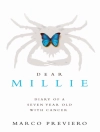In ‘Dear Enemy, ‘ Jean Webster crafts an epistolary novel that explores the transformative journey of Judy Abbott, a spirited young woman who has outgrown the orphanage that raised her. Written in a lively and engaging style, the book unfolds through a series of letters exchanged between Judy and her mentor, the wealthy and philanthropic Mr. J. Elfreda, as she takes on the challenging role of managing the orphanage herself. This narrative form not only offers readers an intimate glimpse into Judy’s thoughts but also highlights themes of social reform, maturation, and the importance of community within the broader context of early 20th-century American literature, a period marked by increasing interest in social justice and women’s autonomy. Jean Webster, an influential author of her time, drew upon her own experiences growing up in an orphanage to create Judy’s character and her heartfelt mission. Raised in a well-connected family, Webster was heavily influenced by social reform movements of her time, especially as they related to the rights and education of women and children. This background infused her writing with a sense of authenticity and urgency, allowing her to tackle serious issues while maintaining a charming and whimsical tone. ‘Dear Enemy’ is a delightful and thought-provoking read that resonates with those who appreciate character-driven narratives with social significance. Readers seeking a blend of humor, heart, and insightful commentary on the human experience will find Judy’s misadventures and triumphs both captivating and inspiring. This book is a testament to the power of compassion and the evolving roles of women in society, making it a must-read for anyone interested in classic literature with enduring relevance.
Yazar hakkında
Jean Webster (1876-1916) was the pen name of American writer Alice Jane Chandler Webster. Born in Fredonia, New York, Webster was known for her strong female protagonists and her involvement in social issues, particularly women’s suffrage and education reforms. She graduated from Vassar College in 1901 and drew upon her experiences there to craft stories that often featured intelligent, independent women. Webster’s literary style combined humor, social commentary, and a progressive stance on women’s rights, which was innovative for her time.
Her best-known work, ‘Daddy-Long-Legs, ‘ published in 1912, is an epistolary novel detailing the experiences of a young orphan girl, Judy Abbott, who goes to college through the generosity of an anonymous benefactor. In the 1915 novel ‘Dear Enemy, ‘ a sequel to ‘Daddy-Long-Legs, ‘ Webster continued her exploration of social themes, following the character Sallie Mc Bride, who manages an orphan asylum. Though it was less well-known than its predecessor, the novel similarly employs a series of letters to provide social critique and insights into institutional life. Webster’s work remains significant for its insightful representation of early 20th-century womanhood and its contribution to social reform narratives. Unfortunately, Webster’s literary career was cut short when she died at the age of 39 due to childbirth complications, leaving behind a legacy that has inspired many social-minded writers in the succeeding generations.












